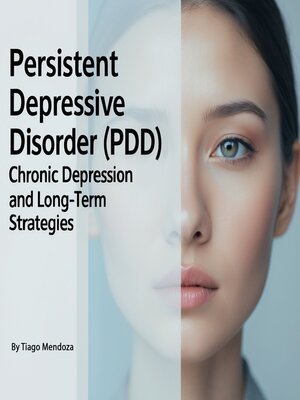Persistent Depressive Disorder
audiobook (Unabridged) ∣ Chronic Depression and Long-Term Strategies
By Tiago Mendoza

Sign up to save your library
With an OverDrive account, you can save your favorite libraries for at-a-glance information about availability. Find out more about OverDrive accounts.
Find this title in Libby, the library reading app by OverDrive.



Search for a digital library with this title
Title found at these libraries:
| Library Name | Distance |
|---|---|
| Loading... |
This audiobook is narrated by a digital voice.
Depression is often portrayed as a storm that passes through one's life, bringing darkness and turmoil before eventually clearing to reveal brighter skies. However, for millions of people worldwide, depression is not a temporary weather pattern but rather a persistent climate that colors their entire existence. This enduring form of depression has a name: Persistent Depressive Disorder, formerly known as dysthymia, and it represents one of the most misunderstood yet prevalent mental health conditions of our time.
Persistent Depressive Disorder, or PDD, is characterized by a chronic state of depression that lasts for at least two years in adults and one year in children and adolescents. Unlike major depressive episodes that come and go with distinct periods of normal mood in between, PDD creates a continuous low-grade depression that becomes so familiar to those who experience it that they often mistake it for their natural personality or temperament. This condition affects approximately 1.5% of adults in the United States each year, with lifetime prevalence rates reaching up to 6% of the population.
The insidious nature of PDD lies in its subtlety. While major depression might knock someone off their feet with overwhelming symptoms that clearly signal something is wrong, PDD operates more like a slow leak in a tire. The individual continues to function, go to work, maintain relationships, and fulfill daily responsibilities, but everything requires more effort than it should. Life feels muted, as if someone has turned down the contrast and saturation, leaving everything appearing in shades of gray rather than vibrant colors.







